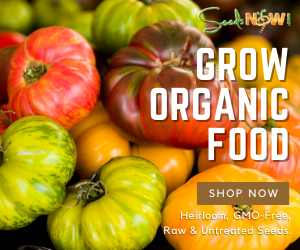There was a post on Serious Eats titled Food Trend you wish would fade away?
Of the 160+ comments left, there were a handful that stood out to me. Those were left from the people who were hatin on the “organic” and “local” food trends.
These comments reiterated to me how disconnected from food we have become. I’m pretty sure, but organic and local aren’t necessarily food trends. It’s not until the last 100-200 years that we have had non-local and conventionally grown foods available to us.
Organic and local were your only options. You didn’t have the luxury of living in New York and being able to buy pineapples or mangos.
The trend that has developed is having these overly processed foodlike products available to us. It’s having unseasonal foods imported to us from thousands of miles away.
We don’t realize or appreciate how lucky and fortunate we are to have these options available to us. Instead, we take them for granted.
It’s more difficult these days for people to get local and organic food than to get the imported stuff.
One commenter said, “I have to agree with Organic. I know people who won’t eat anything that’s not organic and they pay out the wazoo! Ridiculous in my opinion.”
This is likely the same person who pays ridiculous amounts for prescription drugs, a large screen TV and SUV.
We have become so far disconnected from food that we see it as that…an expense that’s not warranted.
So eating local and organic isn’t a food trend. It’s our history.
The food trends that I’d like to see fade away are the overly processed, boxed and packaged garbage that’s being sold to us to disappear. I’d also like to see conventionally grown and GMOd crops to fade away.
What food trends would you like to see fade away?






















Good Golly! Let’s get rid of the sugary snack crap thinly disguised as “healthy” that the big companies market directly at children! It’s my personal opinion that kids would not be such picky eaters if they were raised on a variety of truly healthy food. The temptation of overly sweet or deep fried and frozen prepackaged junk just wouldn’t be an issue if kids regarded a bit of real fruit as a sweet treat. Yes, its more expensive in the immediate timeline but think of the savings in medical treatment for type 2 diabetes as just one example.
So true and it doesn’t have to be expensive either. The companies make some of the stuff more expensive because of the perceived value. Plus the other stuff is so cheap because of all the hidden and external costs.
You are so right, Mike~ Growing and wildcrafting our own food and herbs is our history! Back to our roots! AND, I have much gratitude for being able to enjoy California wine, avocados, etc here in Colorado. If I can be transported in a plane than I think my wine can be too! I just feel that if we all continue to follow that which feels luscious and divine to our own Hearts, and stay focused on ourselves, we can’t go wrong. Thanks for offering a very thought-provoking question~
I agree totally but as consumers we are going to have to pay more. I dont think farming is really profitable because the competition from big dog, mass production, GMO farms. One thing that could sway this is if the big retailers like WalMart and Target starting purchasing their produce locally. this would give the local farmers the support they need
Thanks for your comment. I wanna start learning more about wild foraging.
There are the hidden and external costs to the cheap and conventional foods. That can’t be dismissed.
Also if the big box stores start buying local, then those locals are at their mercy. Wal-Mart has crushed some companies that way.
True. True.
None of the “organic” or natural farmers I know receive any government subsidy whatsoever. If you are going to accept a handout, you must submit to the will of they that extend it.
You know the story of “Big Box” stores getting into the local food economy. It is engulf-and-devour run amok. There is that great story about Whole Foods going to the Pork Co-op in Wisconsin, because of the Co-op’s reputation for pastured pigs. Whole Foods simply wanted their story, their legend, then would raise pigs under the Co-op brand on a CAFO to ensure consistency. . .Big Box is NOT the answer.
Absolutely not.
I disagree, I think global companies should not be in the local food movement. Target and Walmart make all of their stores the same in every community. That is fine if they are selling socks, but food is very regional, both in what people eat and what kind of food can be grown. Local farmers are supported by their local communities, I think CSAs and local farmers markets are evidence of that.
I would like to see the “dollar” menu and fast food trend disappear. If a person saved all the “dollars” of purchased and processed fast food eaten at these venues, he or she could probably rent a piece of land and a pressure cooker to process what could be grown from seed!
Hahhaa. True dat.
Short backstory: I live literally right up the street from a small (read: tiny) farm that currently offers pick-your-own strawberries. I’ve heard people rave that Virginia strawberries are the best strawberries… we picked our own and they were amazing.
That being said, I’d like to see the trend of shipping California strawberries to Virginia markets (as an example). If we have good produce growing in our own backyard, why bring in that very same produce from across the country?
When I live in California, I want to eat California strawberries… when I live in Virginia, I want to eat Virginia strawberries… it doesn’t make sense to “trade” food when it’s available locally in both places!
I’m with you. Our food production system is so f’d up.
Here here! We forget b/c we weren’t there , have no oral history, the photographic evidence is that of the dustbowl years and the depression (thanks Eudora)Well, not me, but millions of others. Farming as away of life and doing the sensible immediate traditional farming methods was all there was to do. It wasn’t until after WW2 with the surplus of nazi origin chemicals and the British petrol exploitation of Saudi Arabia, uae, etc, and the cementation and asphaltation of fertile farmland in the US, plus the mind control of most of the population that food came from “there” and its was “dirty” food became processed, and so on, that people just fell off the cliff of sensible, local and sustainable nutritional practices.
Bottom line: too many people (demand) and maybe not enough supply. Thats the argument I hear in REAL RURAL US of A. ” The government says eat more fruits and vegetables, so we as farmers ( BIG AG) do what is asked and crank out more food. You hippies have no idea what it takes to crank out billions of pounds of fruit and veggies for million of Americans”.
I’ve been to the community meetings. I’ve faced off with Farmers, they are tough. They make points that are hard to disagree with. They are good old boys in a classic situation: they hate the government, hate taking subsidies, but they have to to “keep the farm”. The vote conservative and despise “liberals” who insist on organic. So much that they bend the definition of “organic” to suit their needs and sell it to Walmart.
I think to really make a change, these Big Ags and You and I are going to have to get along somehow. Somewhere beyond politics.
About 30% of food produced is gone to waste in the food production cycle, so there is something wrong with the system.
How do you see this?
In Michigan where Meijer (a locally-based chain grocery store) is king, they have started providing a lot (over half) of local fruits and vegetables in their produce section. Of course, in my home state you can’t walk 5 miles without hitting a farm (urban and rural alike), so I think they did it to compete with the farmers markets which reign supreme in the summer. The local producers don’t feel slighted – they’re ecstatic. But then again, a chain like Meijer is unique in that it has a very strong tie to it’s founding community. Perhaps the answer isn’t just chain-grocery=bad. Perhaps it’s that many chain groceries have lost their sense of place and connection to communities that hold them accountable. I don’t think Meijer is a big-box, but I think it’s a step towards that half way point.
Agreed. Generalizations are just that generalizations. They don’t hold true for all the big-box, but unfortunately most do suck. Though anysteps are likely good ones…
Word. Plus it’s hard for global companies to really adapt to the local movement since it’s not in their business model.
My Wal-Mart is starting that trend. Our neighbor sells his homegrown corn to the local Wal-Mart literally half a block away from us. I am going to try and do the samething next spring. This could be a good TREND
You hippies? I was giving your post merit up until the point you felt you had to label your reader. It really wasn’t necessary and detracted significantly from your point. I’m far from being a hippy, and I suspect many of the readers on here would also not conform to that stereotype. All people from all walks of life are starting to be concerned with what’s going into our food. Your own statement, “The government says …” is the heart of this entire matter. People need to stop and think about that statement right there and ask themselves if the government really has our best interests at heart or if they are just looking for the quickest and easiest way to make more money for themselves. How did farmers manage hundreds of years ago? Why suddenly are they having to do things they “hate” to “keep the farm”? That’s the real question.
What always gets me is the way people will eat crap to “save” money, as if their health isn’t worth it.